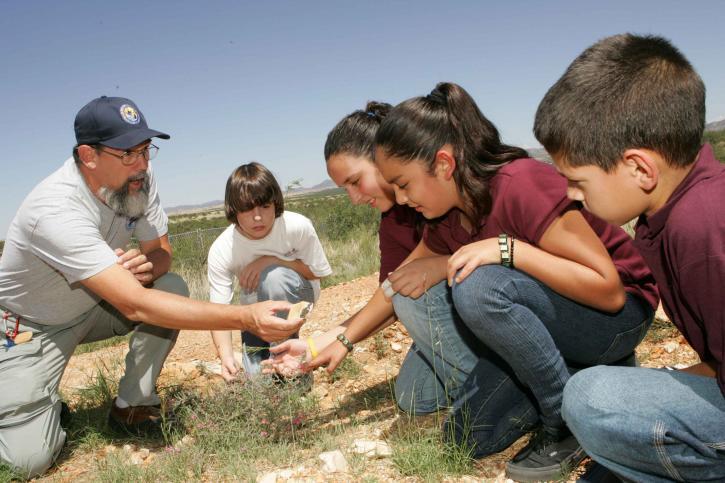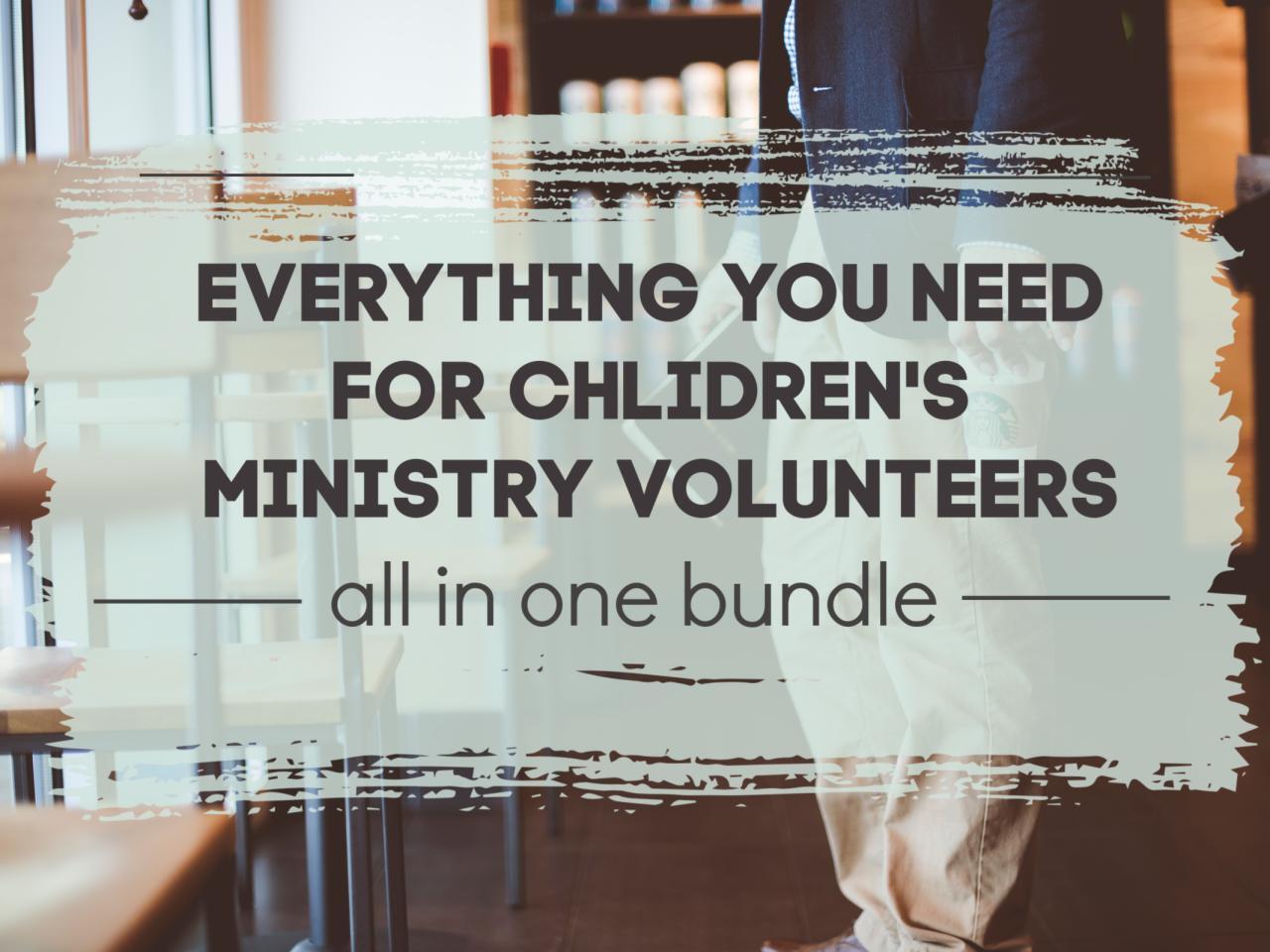Embark on a transformative journey by volunteering your skills while traveling. This comprehensive guide provides a roadmap for identifying your transferable skills, finding suitable opportunities, and maximizing your impact on local communities. From meticulous planning to reflecting on your experience, this guide equips you with the knowledge and tools to make a meaningful difference while exploring the world.
The process involves assessing your skills, researching opportunities, preparing for the experience, managing your time effectively, and maximizing your impact. A crucial aspect is respecting local customs and cultures, ensuring your contributions are meaningful and sustainable. By understanding visa requirements, cultural norms, and the importance of post-experience reflection, you’ll gain a fulfilling travel experience, build lasting connections, and gain invaluable life skills.
Identifying Skill Sets

A crucial aspect of successful volunteer travel is recognizing and leveraging your existing skills. Identifying your transferable skills allows you to find volunteer opportunities that align with your talents and interests, making your experience more rewarding and impactful. This section will guide you in assessing your skill sets, considering transferable abilities, and connecting them to potential volunteer activities.
Diverse Skill Categories
Volunteers bring a wide array of skills to projects around the world. These skills can be categorized across various fields, enhancing the diversity and impact of volunteer efforts. The following list provides examples of skill categories, which will aid in the self-assessment process.
- Teaching: Classroom instruction, curriculum development, tutoring, workshops, and mentoring. This encompasses a broad range of knowledge and experience, from primary education to specialized subjects.
- Healthcare: First aid, basic medical care, health education, assisting in clinics, and providing support to local medical professionals. Prior experience in nursing, paramedicine, or other healthcare fields is beneficial.
- Construction: Building repairs, maintenance, home construction, and infrastructure projects. Practical skills in carpentry, plumbing, electrical work, and masonry are valuable.
- Technology: Computer skills, software development, web design, digital literacy training, and technical support. Modern technological skills can be invaluable in numerous settings.
- Environmental Conservation: Habitat restoration, waste management, sustainable practices, environmental awareness programs, and nature preservation efforts. Experience with environmental projects is useful.
- Arts & Culture: Creative arts, music, drama, photography, and cultural exchange programs. Artistic skills can contribute significantly to cultural enrichment and community development.
- Community Organizing: Facilitating meetings, organizing events, developing communication strategies, and community outreach. Skills in leadership and interpersonal relations are beneficial.
Skill Assessment and Evaluation
Evaluating your own skills is a crucial step in finding volunteer opportunities that match your abilities. Self-assessment helps identify skills that can be applied to diverse situations.
- Reflect on past experiences: Consider past jobs, projects, or personal endeavors where you utilized specific skills. Think about situations where you excelled and areas where you could improve.
- Identify transferable skills: Many skills used in one field are transferable to another. For example, project management skills developed in a corporate setting can be applied to volunteer community development projects.
- Seek feedback from others: Ask trusted colleagues, friends, or mentors for their perspective on your skills. Honest feedback can provide valuable insights and highlight areas you may not have considered.
- Research volunteer opportunities: Understanding the specific needs of different organizations will help you match your skills with the requirements of the volunteer position.
Transferable Skills
Many skills are transferable across various volunteer sectors. These versatile abilities can be utilized in a wide range of volunteer settings, increasing your adaptability and usefulness.
- Communication: Clear and effective communication is essential in various settings, from explaining concepts to building relationships.
- Problem-solving: The ability to identify and resolve issues is valuable in any volunteer context.
- Teamwork: Collaborating effectively with others is crucial for successful project completion.
- Organization: Managing time and resources efficiently is vital in any volunteer role.
- Adaptability: Being able to adjust to new environments and situations is essential in diverse volunteer experiences.
Connecting Skills with Interests and Goals
Matching your skills with your personal interests and travel objectives can significantly enhance your volunteer experience. This alignment can lead to a more fulfilling and impactful journey.
- Identify your interests: Consider your passions and hobbies. What topics or areas are you naturally drawn to?
- Align your skills with your interests: Look for volunteer opportunities that allow you to utilize your skills in areas that genuinely interest you.
- Consider your travel goals: Do you want to focus on a particular region or culture? Seek volunteer opportunities that complement your travel objectives.
Skill-Volunteer Activity Correlation
| Skill Type | Potential Volunteer Activity |
|---|---|
| Teaching | Tutoring English, leading workshops, teaching local children |
| Healthcare | Providing first aid, assisting in clinics, participating in health awareness campaigns |
| Construction | Building homes, repairing infrastructure, assisting in community development projects |
| Technology | Setting up computer labs, providing digital literacy training, assisting local businesses |
| Environmental Conservation | Planting trees, cleaning up beaches, participating in environmental awareness campaigns |
Finding Opportunities
Discovering suitable volunteer opportunities while traveling is crucial for a rewarding experience. It allows you to connect with local communities, gain practical experience, and contribute to meaningful projects. This process often involves navigating various platforms and resources, understanding different organizational approaches, and tailoring your search to your specific interests and skills.A well-researched approach to finding opportunities is essential for a successful and enriching travel experience.
This includes considering various online platforms, evaluating different organizations, and connecting with local communities.
Online Platforms and Resources
Numerous online platforms provide a wealth of information and opportunities for volunteer work abroad. These platforms often connect travelers with organizations needing assistance in diverse areas. Sites like Idealist, Go Overseas, and VolunteerMatch are valuable resources for finding volunteer positions worldwide. They offer detailed descriptions of available roles, allowing prospective volunteers to carefully match their skills and interests with the specific needs of organizations.
Some platforms even offer advanced search filters to narrow results by location, skill, and timeframe, streamlining the search process.
Volunteer Organizations and Focus Areas
Volunteer organizations vary considerably in their mission and focus. Some prioritize environmental conservation, while others focus on education, healthcare, or community development. Recognizing these differences is key to choosing an opportunity that aligns with your personal values and interests. Organizations dedicated to environmental conservation often concentrate on reforestation, wildlife protection, or sustainable agriculture initiatives. Conversely, organizations focusing on community development may offer opportunities in local infrastructure projects, skill-sharing programs, or educational outreach.
A crucial aspect of evaluating opportunities involves understanding the organization’s core mission and the specific impact they aim to achieve.
Criteria for Evaluating Opportunities
Several criteria are essential for evaluating volunteer opportunities, ensuring a good match between your goals and the offered role. Factors such as the organization’s reputation, the duration of the commitment, and the alignment with your skillset are vital considerations. Consider the specific tasks involved in the role, the level of support provided by the organization, and the overall impact the opportunity will have.
The level of support, including logistical assistance and cultural orientation, can significantly influence the success of your volunteer experience.
Table of Resources for Finding Volunteer Work Abroad
This table categorizes resources for finding volunteer work abroad by region, offering a quick overview for travelers.
| Region | Resource |
|---|---|
| North America | Idealist, VolunteerMatch, Points of Light |
| Europe | Go Overseas, HelpX, Workaway |
| South America | HelpX, Workaway, VolunteerForever |
| Asia | Go Overseas, HelpX, Global Citizen |
| Africa | VolunteerMatch, Idealist, Projects Abroad |
Connecting with Local Communities
Direct interaction with local communities is a valuable approach to discovering volunteer opportunities. Participating in local events, attending community gatherings, and engaging with local organizations can provide insights into unmet needs and potentially lead to volunteer roles. Building relationships with local residents, understanding their customs, and respecting their culture can help uncover opportunities that may not be advertised online.
Engaging with local communities organically often leads to more meaningful and impactful volunteer experiences.
Preparing for the Experience

Embarking on an international volunteering journey requires meticulous preparation. Understanding the legal and logistical aspects, cultural nuances, and practical necessities is crucial for a successful and enriching experience. This phase involves more than just packing your bags; it encompasses thorough research, careful planning, and a commitment to cultural sensitivity.Thorough preparation is vital for a positive and productive volunteer experience.
This includes navigating visa and permit requirements, researching local customs, and ensuring adequate provisions for personal safety and well-being. Proper preparation also involves equipping yourself with the necessary language skills and packing appropriate supplies for the chosen volunteer activity.
Visa and Permit Requirements
International volunteering often necessitates specific visa and permit approvals. These requirements vary significantly depending on the destination country and the nature of the volunteer work. Failure to obtain the necessary documentation can lead to legal issues and impede your ability to participate in the program. Thorough research is paramount in determining the specific visa or permit requirements for the chosen destination.
For instance, some countries may require a specific type of work visa, while others might have a simplified process for short-term volunteer programs.
Obtaining Necessary Documentation
The process of obtaining the required documentation can vary depending on the specific country and program. It typically involves submitting applications, providing supporting documents (such as passport copies, proof of funds, and letters of recommendation), and possibly undergoing interviews. Contacting the relevant authorities or program organizers is crucial to understanding the specific steps and timelines. A clear understanding of the documentation process and deadlines is vital for avoiding delays and ensuring a smooth transition.
Researching Local Customs and Cultural Norms
Understanding local customs and cultural norms is essential for successful integration and respectful interaction with the host community. Cultural sensitivity is critical to building rapport and avoiding misunderstandings. Learning about local etiquette, communication styles, and social norms is crucial. This can include researching appropriate greetings, dress codes, and dining customs. For example, some cultures might prioritize direct eye contact, while others might consider it disrespectful.
This kind of preparation fosters respect and understanding.
Essential Packing Items and Considerations
The necessary packing items depend on the type of volunteer work and the destination’s climate. Volunteers should anticipate the specific tasks they’ll be undertaking and pack accordingly. For example, a volunteer working in a rural community might require different clothing than one working in a city. Climate is a key factor; research the expected weather conditions to ensure appropriate clothing and gear.
Medical supplies and personal hygiene items should also be considered.
- Clothing: Pack versatile clothing suitable for the climate and the type of work. Consider the local climate and cultural norms when selecting clothing items.
- Personal Documents: Carry copies of essential documents such as passports, visas, and insurance information.
- Medical Supplies: Pack necessary medications, first-aid supplies, and any personal health items. Consult with a doctor regarding vaccinations and necessary health precautions for the destination.
- Communication Tools: Consider a portable charger, international adapter, and translation tools, if needed.
- Personal Items: Pack items for comfort and hygiene. Pack comfortable shoes and other essential items for daily use.
Pre-Departure Checklist
A well-organized pre-departure checklist can ensure you are prepared for the volunteer experience. This list should cover various aspects, including language learning, travel arrangements, and necessary health precautions.
- Language Learning: Learning basic phrases in the local language is crucial for effective communication. Utilizing language learning apps or resources can help.
- Visa and Permit Applications: Ensure that all necessary visa and permit applications are submitted and processed.
- Travel Arrangements: Confirm travel arrangements, including flights, accommodation, and transportation to the volunteer site.
- Health and Safety: Review necessary vaccinations, health insurance, and emergency contacts.
- Personal Items: Pack necessary personal items, including medications, toiletries, and personal documents. Review the list of packing items discussed previously.
Managing the Experience

Successfully navigating a volunteer experience abroad hinges on effective communication, realistic expectations, and proactive conflict resolution. This phase requires a conscious effort to maintain a positive attitude, foster collaboration, and ensure a rewarding experience for all involved. Effective management of the experience can significantly contribute to the overall success of the volunteer program and your personal growth.
Effective Communication Strategies
Maintaining open and honest communication with supervisors and team members is crucial for a smooth experience. This includes actively listening to feedback, clearly articulating needs and concerns, and proactively seeking clarification on tasks and expectations. Regular check-ins and constructive dialogue can prevent misunderstandings and foster a supportive environment. Remember to be respectful of cultural differences in communication styles, and be mindful of the different communication methods available.
This could involve utilizing written communication, emails, or phone calls, depending on the situation and preferences of the group.
Setting Realistic Expectations
Setting realistic expectations for the volunteer experience is essential to avoid disappointment. It’s important to understand that volunteer work often involves diverse tasks, varying levels of support, and potential challenges. Volunteers should approach the experience with an open mind and a willingness to adapt to unforeseen circumstances. This approach can significantly enhance the overall experience. Recognizing that the experience may not always be as initially perceived can lead to a more fulfilling and less stressful journey.
Conflict Resolution Strategies
Conflict resolution is an inevitable part of any collaborative endeavor. Developing strategies to address disagreements constructively is vital. Active listening, empathy, and a willingness to compromise are key elements in resolving conflicts peacefully. If a disagreement arises, it’s important to address it promptly and respectfully with the involved parties. Mediation or conflict resolution training can equip volunteers with the tools to navigate challenging situations.
When disagreements arise, focus on finding common ground and solutions that address the concerns of all parties involved.
Documentation and Reflection
Thorough documentation and reflection are important for learning from the experience and gaining insights into personal growth. Keeping a journal or logbook to record daily activities, observations, and reflections is a valuable tool. This documentation can provide valuable insights into the effectiveness of the volunteer efforts and any lessons learned. Regularly reflecting on experiences helps in identifying personal strengths and areas for improvement.
This process of documentation and reflection enhances the overall value of the volunteer experience.
Potential Challenges and Solutions
| Potential Challenge | Possible Solutions |
|---|---|
| Cultural Differences in Communication Styles | Actively listen, seek clarification, and be patient. Research cultural norms and communication styles in advance, and adapt communication accordingly. |
| Unforeseen Circumstances | Maintain flexibility, adapt to changing situations, and communicate effectively with supervisors. |
| Disagreements with Team Members | Address concerns directly and respectfully. Focus on finding common ground and solutions. Seek mediation if necessary. |
| Feeling Overwhelmed | Prioritize tasks, manage time effectively, and communicate with supervisors for support. |
| Language Barriers | Utilize translation resources, learn basic phrases in the local language, and be patient with communication breakdowns. |
| Feeling Isolated | Actively participate in team activities, maintain contact with other volunteers, and seek opportunities to connect with locals. |
Maximizing Impact
Maximizing the positive impact of volunteer work while traveling requires careful planning and a genuine commitment to the community. This involves not only the practical application of skills but also a deep understanding of local culture and a willingness to learn and adapt. By respecting local customs and traditions, volunteers can foster genuine connections and create sustainable positive change.Effective volunteer initiatives go beyond simply fulfilling a task list.
They involve a collaborative approach, understanding the specific needs of the community, and adapting strategies for optimal outcomes. By thoughtfully considering the community context and engaging in meaningful cultural exchange, volunteers can make a far-reaching difference.
Strategies for Maximizing Positive Impact
A key aspect of maximizing impact is understanding the community’s specific needs. Instead of imposing pre-conceived ideas, volunteers should actively seek input from local leaders and residents to determine the most pressing issues. This participatory approach ensures that efforts are aligned with local priorities, increasing the likelihood of a lasting positive impact. For instance, a volunteer with teaching skills might find that the local school’s greatest need is supplementary materials rather than additional teachers.
- Prioritize Needs Assessment: A crucial first step is understanding the community’s needs, not just the perceived needs. Engage with local organizations, leaders, and residents to gain a comprehensive understanding of the priorities and challenges. This approach ensures volunteer efforts align with genuine community requirements, enhancing their impact.
- Focus on Sustainability: Consider how the volunteer work can contribute to long-term solutions rather than short-term fixes. For example, providing training to local artisans can empower them to create sustainable income streams, benefiting the community long after the volunteer’s departure.
- Collaboration and Partnership: Effective volunteer initiatives often involve partnerships with local organizations. Collaborating with existing groups allows for leveraging existing resources and expertise, optimizing the use of time and skills for maximum impact.
Respecting Local Customs and Traditions
Cultural sensitivity is paramount in volunteer work. Respecting local customs and traditions demonstrates a genuine appreciation for the community and builds trust. This respect extends to all aspects of interaction, from communication styles to dress codes.
- Research and Awareness: Thoroughly research local customs and traditions before the volunteer experience. Understanding these nuances will help avoid unintentional offense and demonstrate respect.
- Active Listening and Adaptation: Pay close attention to how locals communicate and interact. Be willing to adapt to their ways of doing things, demonstrating respect and fostering better communication.
- Dress Code Considerations: Research appropriate attire for the community. If there are specific guidelines, follow them to demonstrate respect for local traditions and customs.
Leveraging Travel Experiences for Enhanced Volunteer Efforts
Travel experiences often offer unique insights into different cultures and perspectives. By drawing upon these experiences, volunteers can enhance their volunteer work by bringing a broader understanding of the world.
- Cross-Cultural Understanding: Travel experiences often provide unique insights into different cultures and perspectives. This broadened understanding can inform and enhance volunteer efforts, promoting a more nuanced approach.
- Cross-Cultural Comparisons: Comparing local practices with experiences from other regions can offer valuable insights. This comparative approach can inform strategies and promote better understanding and communication.
Cultural Exchange and Understanding in Volunteer Work
Cultural exchange is not merely a nice-to-have; it is a fundamental component of effective volunteer work. It fosters mutual respect, understanding, and a more holistic approach to problem-solving.
- Building Bridges: Volunteer work often involves interactions with people from diverse backgrounds. By fostering cultural exchange, volunteers contribute to building bridges between cultures and promoting understanding.
- Learning and Growth: Volunteering provides a unique opportunity for personal growth. Learning about different cultures and perspectives enriches the volunteer experience and contributes to a more meaningful interaction.
Evaluating Volunteer Initiatives
A framework for evaluating volunteer initiatives is essential for measuring impact and identifying areas for improvement. It should include metrics that assess both the short-term and long-term effects of the work.
| Metric | Description | Measurement |
|---|---|---|
| Community Feedback | Gather feedback from local residents and leaders on the effectiveness of the initiative. | Surveys, interviews, focus groups |
| Impact on Specific Needs | Assess how the initiative addressed the identified needs of the community. | Before & After data collection, qualitative assessments |
| Sustainability | Evaluate the initiative’s potential for long-term impact and sustainability. | Community follow-up, partnership development |
Concluding Remarks

In conclusion, volunteering your skills while traveling offers a unique opportunity to combine personal growth with global contribution. This guide has Artikeld the steps for successfully navigating the process, from identifying your strengths to documenting your experiences. By understanding the complexities of cultural exchange and respecting local customs, you can maximize your impact and create lasting positive change.
Remember, your skills and passion are powerful tools for creating a more meaningful and enriching journey.